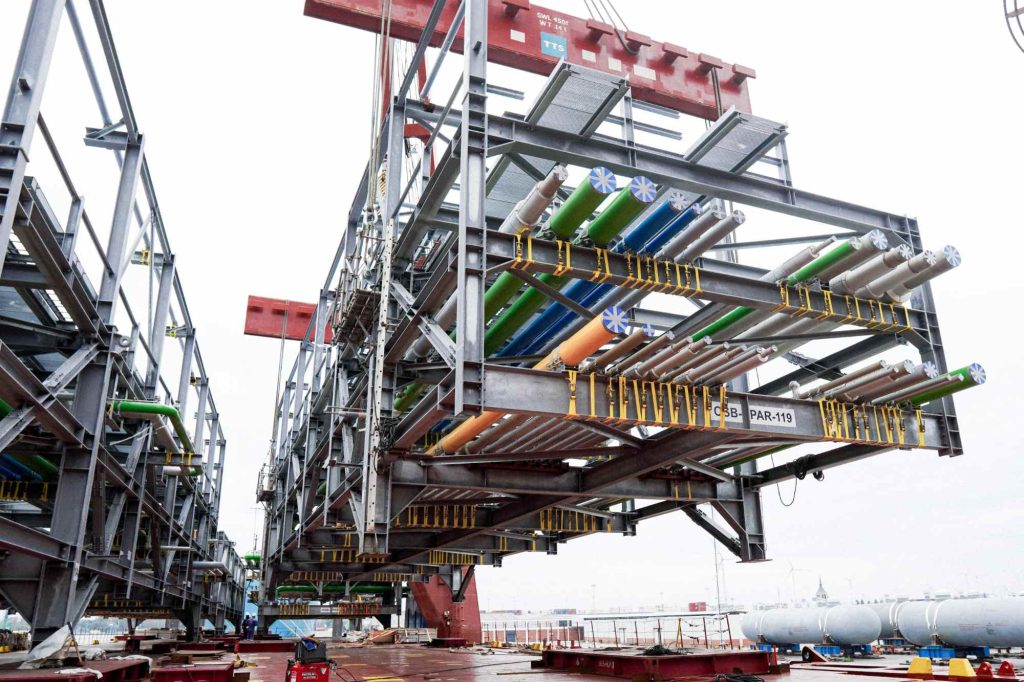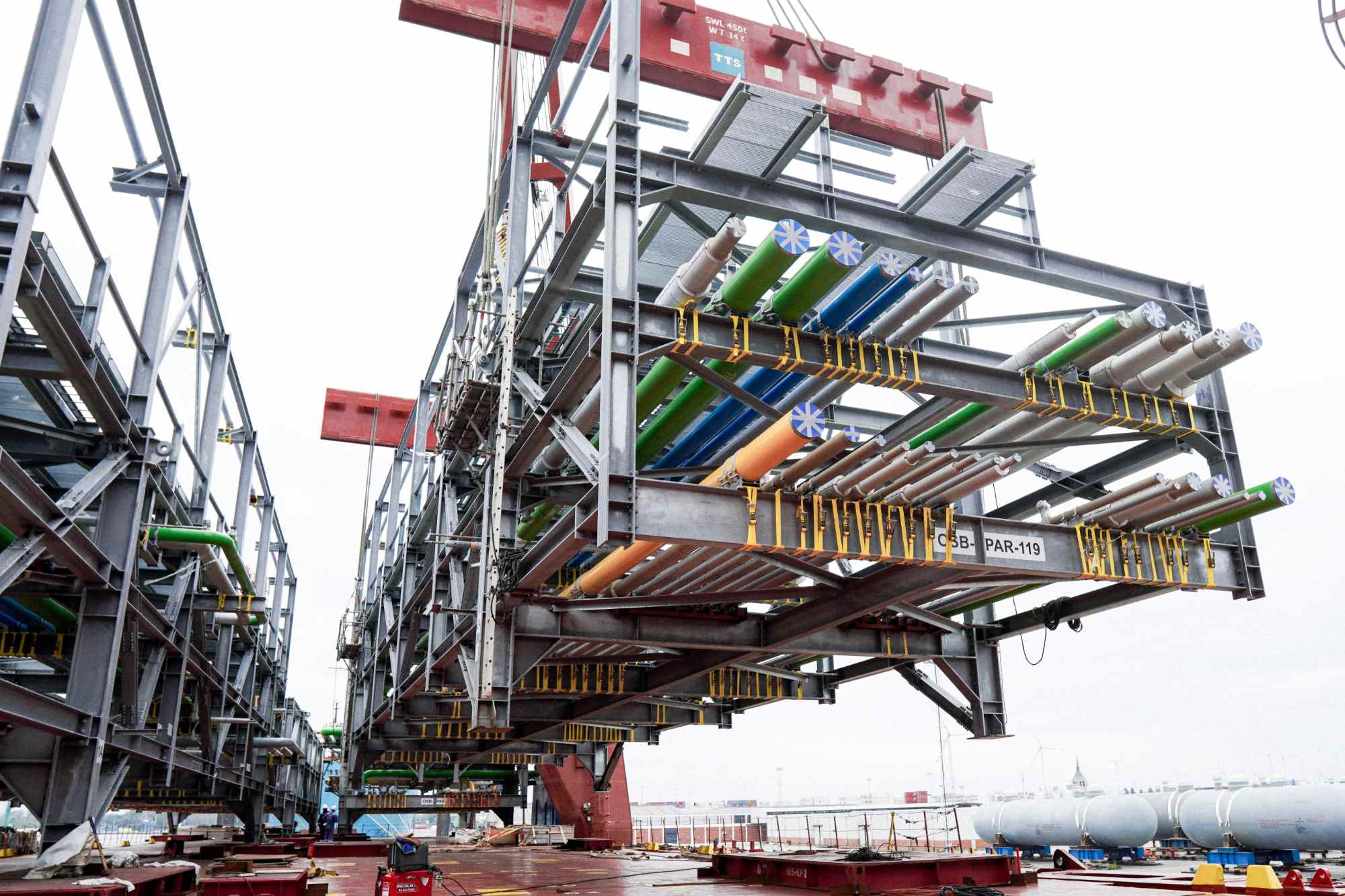AsstrA-Associated Traffic AG is an international logistics and transportation company headquartered in Zurich, Switzerland. Founded in 1993, the company has evolved into a comprehensive global supply chain partner with a presence in over 20 countries across Europe, Asia, the Middle East, and the CIS region. With more than 1,000 employees worldwide, AsstrA supports clients from diverse sectors such as automotive, FMCG, retail, chemicals, machinery, and heavy industry. The company is recognized for its commitment to secure, flexible, and tailor-made logistics services, underpinned by high standards in compliance, sustainability, and digital innovation. In line with its growth strategy, AsstrA expanded its global reach in 2025 by opening a new regional office in Abu Dhabi, strengthening its presence in the Middle East logistics corridor.
Interview with Vladislav Lagun, Chief Commercial Officer at AsstrA-Associated Traffic AG.
What are the main areas of activity of the company?
Vladislav Lagun: AsstrA’s main areas of activity revolve around multimodal freight transportation—by road, rail, sea, and air—supplemented by value-added services such as customs clearance, warehousing, and cargo insurance. A significant focus is placed on project logistics, where AsstrA coordinates the movement of oversized and heavy cargo for sectors like energy and construction.
What’s the news about new products/services?
V.L: In 2025, AsstrA continued to build on its commitment to sustainable logistics and complex project deliveries. The company successfully completed a milestone delivery for the INEOS Project ONE in Belgium, overseeing the transport of oversized industrial modules from Southeast Asia to Europe. Another major initiative involved the pilot launch of HVO100 renewable fuel in Poland, conducted in partnership with Unimot and Renault Trucks. This pilot reflects AsstrA’s investment in carbon-reduction technologies and aligns with its broader environmental goals. The company also participated in Breakbulk Europe 2025, underlining its leadership in the project cargo segment. The opening of a new regional office in Abu Dhabi further signals an expanded service offering for clients operating in the Middle East and North Africa region.
What are the ranges of products/services?
V.L: AsstrA offers a full spectrum of logistics services to support businesses across industries and supply chain complexities. These include international freight transportation by road, sea, air, and rail; customs brokerage and documentation handling; cargo insurance; short- and long-term warehousing; and bonded storage. The company’s portfolio also covers specialized logistics for heavy and oversized cargo, temperature-sensitive goods, and dangerous materials. In addition, AsstrA provides DDP shipping, value-added packaging, on-site logistics coordination, and real-time route optimization via its control tower model. Clients benefit from customizable solutions that are not only efficient and scalable but also aligned with current sustainability and compliance standards.
What is the state of the market where you are currently active?
V.L: The logistics market in which AsstrA operates is dynamic and increasingly influenced by macroeconomic shifts, environmental regulations, and geopolitical developments. In Europe, demand for secure and efficient cross-border freight remains high, although ongoing driver, financing & infrastructure challenges, present hurdles. The Central Asian region continues to show growth, particularly in rail-based transport between China and Europe, with Kazakhstan emerging as a vital hub. Meanwhile, the Middle East is becoming a strategic logistics node, especially in sectors such as energy, construction, and international trade. AsstrA’s recent office launch in Abu Dhabi reflects its response to growing demand for logistical solutions in the Gulf region.

What can you tell us about market trends?
V.L: Several clear trends are shaping the logistics and transportation industry in 2025. The push for more sustainable operations is driving innovation in fuel technologies and emissions monitoring, with companies like AsstrA pioneering the use of HVO100 biofuel to cut emissions by up to 90 percent per journey. Digitization remains another critical trend, with clients seeking real-time insights, predictive analytics, and seamless integration of logistics data into their broader business operations. The shift toward project logistics is also accelerating, fueled by global infrastructure development and the increasing complexity of industrial supply chains. Additionally, stricter customs and trade compliance requirements are making customs brokerage and regulatory expertise more valuable than ever.
What are the most innovative products/services marketed?
V.L: AsstrA has distinguished itself through several forward-thinking service innovations. Our vast partner network allows us to offer alternative (intermodal) transportation option on man trade lanes in Europe. Its project logistics offering stands out for the ability to manage complex, multimodal deliveries such as the recent INEOS project, which required coordination across continents and transport modes. The HVO100 fuel pilot in Poland represents a concrete step toward sustainable transportation, making low-emission logistics a viable option for everyday freight. The use of a digital control tower for centralized, data-driven decision-making further enhances the client experience and operational precision.
What estimations do you have for the second half of 2025?
V.L: For the second half of 2025, AsstrA projects growth across multiple verticals, which is supported by trade growth forecasts & the competitiveness of its offering. Project logistics is expected to maintain momentum, with several large-scale infrastructure and industrial contracts already in progress. Rail freight between Asia and Europe, especially along the Middle Corridor through Central Asia, is forecast to increase due to enhanced corridor infrastructure and continued demand for resilient supply routes. Technological innovation and data analytics will remain central to client partnerships, with investments in digital platforms continuing to enhance service transparency and performance optimization.


